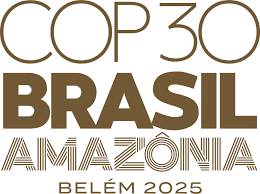
https://cop30.br/en/news-about-cop30/guardians-of-biodiversity-brasil-co...
COP30, to be held in Belém (Brasil), is expected to feature the largest Indigenous participation in the history of the conference, according to the Brazilian government, which holds the presidency in 2025. Minister of Indigenous Peoples Sonia Guajajara estimates that about 3,000 members of Indigenous peoples from around the world will take part in the debates this November. Of these, 1,000 are expected to participate in official negotiations inside the Blue Zone—500 from Brasil and 500 from other countries. The remainder will be present in the Green Zone, designated for civil society observers.
The Brazilian presidency’s goal is to ensure the broadest-ever participation of what United Nations Secretary-General António Guterres calls the “guardians of biodiversity”—Indigenous peoples and traditional communities. On August 9, these populations are honored worldwide on the International Day of the World’s Indigenous Peoples, established by the UN.
The current record for Indigenous participation was set in Paris in 2015 and matched in Dubai in 2023, with 350 representatives.
"“We are confident and optimistic as we work to ensure not only the largest delegation in numbers, but also the most impactful participation,” — said Sonia Guajajara, Minister.
Coordination Efforts
To achieve this record, the COP30 Presidency created the Círculo dos Povos (Circle of Peoples), chaired by Guajajara, to strengthen the inclusion of Indigenous, traditional, and Afro-descendant communities in climate discussions. The Circle is working in coordination with Indigenous populations worldwide through the Indigenous Caucus—the official Indigenous representation within the UNFCCC—to secure the largest delegation in COP history.
In Brasil, the Ministry of Indigenous Peoples (MPI) and the National Foundation for Indigenous Peoples (Funai) are conducting the Ciclo COParente, a series of regional meetings to inform Indigenous communities about the climate conference and prepare local leadership. The name uses “parente” (“relative”), a common term Indigenous peoples use for one another.
Sessions have already been held in the Amazon region (Belém) and across the Caatinga, Pampa, Atlantic Forest, Cerrado, and Pantanal biomes, in the states of Santa Catarina, Pernambuco, São Paulo, Mato Grosso do Sul, Rondônia, Acre, and Maranhão. Final meetings are planned for Roraima, Amapá, Amazonas, and Mato Grosso.
Parallel to this, the MPI is implementing the Kuntari Katu Program, a training course for Indigenous leaders on the complexities of international climate negotiations, in partnership with the Ministry of Foreign Affairs (Itamaraty) and the Rio Branco Institute.
In Belém, accommodations for all 3,000 Indigenous participants have already been secured. The government is setting up a “COP Village” at the Federal University of Pará (UFPA), which will host a dedicated camp for this group..
COP30 President Ambassador André Corrêa do Lago underscored that Indigenous participation is a presidential priority: “It is extremely important to involve groups that have long been marginalized from global economic and political processes, such as Indigenous peoples and Black communities, when preparing for the Conference.”
Key Agenda
Sonia Guajajara destaca que os povos originários de todo o planeta têm, em comum, a defesa da garantia ao território. De acordo com ela, um dos caminhos para isso é a inclusão da proteção das terras nas Contribuições Nacionalmente Determinadas (NDCs) assumidas pelos países para alcançar a meta global de redução de gases que contribuem para o efeito estufa. A demanda converge com o enfrentamento às mudanças do clima, uma vez que as terras indígenas guardam algumas das zonas mais preservadas do planeta, atuando como "sumidouros de carbono".
“We bring the demand for land demarcation as one of the most effective measures to tackle the climate crisis, with territories serving as a critical tool for mitigation,” she said.
Guajajara also pointed out that since the 2015 Paris Agreement, signatory countries have formally recognized the role of Indigenous lands in climate stability. “It is already understood that Indigenous territories make a significant contribution to maintaining climate balance. These lands are safeguarded by the deep relationship Indigenous peoples have with them and their traditional ways of life. Our right to territorial security is therefore intrinsically connected to the global action agenda for achieving climate goals,” she explained.
At COP30, the MPI will also advocate for Indigenous peoples and traditional communities to receive at least 20% of the Tropical Forests Forever Fund (TFFF), an initiative championed internationally by the Brazilian government. Currently, Guajajara noted, only about 1% of climate-related funding reaches Indigenous territories.
Translation: Tadeu Azevedo (POET/UFC)
Proofreading: Enora Lessinger (POET/UFC)









